- and older people should ideally consume more than the official recommendations
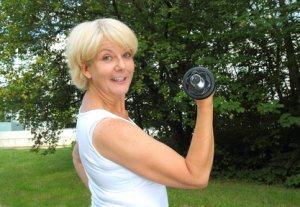 Undernourishment and lack of protein is common among older people. Evidence even suggests that the recommended daily intake of protein is too low, at least as far as seniors is concerned. The problem is most likely a slowdown of the muscle-building enzyme processes. The quality of protein also has something to say just like the amount of physical activity is a factor.
Undernourishment and lack of protein is common among older people. Evidence even suggests that the recommended daily intake of protein is too low, at least as far as seniors is concerned. The problem is most likely a slowdown of the muscle-building enzyme processes. The quality of protein also has something to say just like the amount of physical activity is a factor.
Even short-term con tact with cholesterol lowering drugs can cause potentially harmful side effects such as exercise intolerance and muscle pain, scientists report.
tact with cholesterol lowering drugs can cause potentially harmful side effects such as exercise intolerance and muscle pain, scientists report.
Statins, a widely used class of cholesterol-lowering drugs, are believed to cause exercise intolerance and damage muscle tissue. Now, a team of researchers from Columbia University – College of Physicians & Surgeons, have come one step closer to understanding why. Reporting in the June Archives of Neurology, the team of scientists describe how 34 patients on cholesterol-lowering medicine (atorvastatin) displayed significant reductions in their levels of coenzyme Q10, a vitamin-like substance which cells need in order to produce energy.
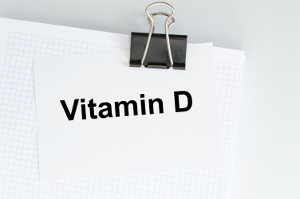 Headache, aching joints, and other types of chronic pain are typically caused by myofascial pain syndrome, which is characterized by localized pain. There can be many underlying causes of this condition, but according to a Thai study published in BMC Nutrition, lack of sunshine and too little vitamin D are quite common among patients. Magnesium therapy may also have an effect, according to a study published in BMC Oral Health.
Headache, aching joints, and other types of chronic pain are typically caused by myofascial pain syndrome, which is characterized by localized pain. There can be many underlying causes of this condition, but according to a Thai study published in BMC Nutrition, lack of sunshine and too little vitamin D are quite common among patients. Magnesium therapy may also have an effect, according to a study published in BMC Oral Health.
 Ageing processes are associated with loss of muscle mass and impaired physical performance, both of which tend to lower quality of life. It is commonly known that coenzyme Q10 plays a significant role in cellular energy turnover and protects against oxidative stress. Now, two independent cohort studies even show a relation between the body’s Q10 status and muscle strength. Earlier research even suggests that Q10 supplements may help older people develop more youthful muscle fibers. Individuals who take cholesterol-lowering statins are advised to take Q10 supplements.
Ageing processes are associated with loss of muscle mass and impaired physical performance, both of which tend to lower quality of life. It is commonly known that coenzyme Q10 plays a significant role in cellular energy turnover and protects against oxidative stress. Now, two independent cohort studies even show a relation between the body’s Q10 status and muscle strength. Earlier research even suggests that Q10 supplements may help older people develop more youthful muscle fibers. Individuals who take cholesterol-lowering statins are advised to take Q10 supplements.
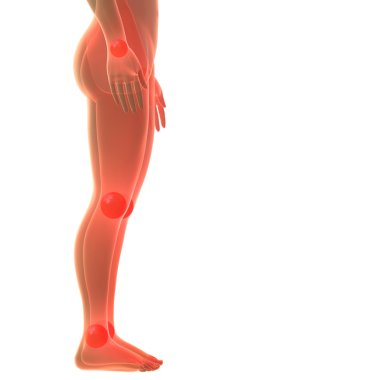 Choose natural solutions instead of potentially lethal medicine
Choose natural solutions instead of potentially lethal medicine
Rheumatic diseases and aching joints are extremely common. One in eight Europeans takes arthritis medication, thereby increasing his or her risk of numerous side effects and premature death. Rheumatism and aching joints are typically caused by inflammation. Research shows that the problems can often be treated with dietary changes and the use of supplements that address the underlying causes and make the pain vanish by itself.
Arthritis drugs take more lives than diabetes and traffic accidents. 7-8% of Europeans use anti-inflammatory painkillers that increase their risk of sensitive gastro-intestinal mucous membranes, indigestion, bleeding ulcers, heart disease, and thrombosis. Calculations show that arthritis drugs take more lives every year than traffic fatalities and diabetes together, making this type of medicine a far greater threat. Most people are unaware of this.
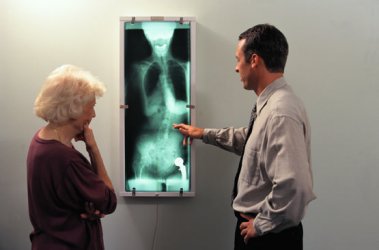 A group of leading international experts (ESCEO) says in a new report that glucosamine sulfate in a pharmaceutical grade is safe and effective in the treatment of osteoarthritis and that it can be recommended as a basic treatment of this disorder. Also chondroitin is recommended.
A group of leading international experts (ESCEO) says in a new report that glucosamine sulfate in a pharmaceutical grade is safe and effective in the treatment of osteoarthritis and that it can be recommended as a basic treatment of this disorder. Also chondroitin is recommended.
 Supplementing with large doses of Q10 may help reduce pain and fatigue in people who suffer from fibromyalgia. An optimal treatment of the disease may even require focusing on underlying causes.
Supplementing with large doses of Q10 may help reduce pain and fatigue in people who suffer from fibromyalgia. An optimal treatment of the disease may even require focusing on underlying causes.
 Combined supplementation with chondroitin sulphate and glucosamine could help to reduce knee joint pain, stiffness, and functional disability of people with osteoarthritis, according to new research published in the top rheumatology journal: Annals of the Rheumatic Diseases.
Combined supplementation with chondroitin sulphate and glucosamine could help to reduce knee joint pain, stiffness, and functional disability of people with osteoarthritis, according to new research published in the top rheumatology journal: Annals of the Rheumatic Diseases.
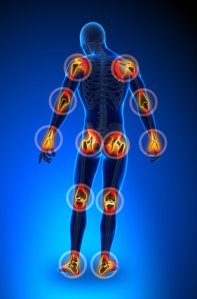 Osteoarthritis is a widespread disease that eventually affects the majority of us. The symptoms often feel worse during the wintertime. A European group of experts now recommends glucosamine sulfate as first-line treatment, before painkillers, as glucosamine sulfate is the only remedy that can prevent further progression of the disease and therefore effectively reduces the pain.
Osteoarthritis is a widespread disease that eventually affects the majority of us. The symptoms often feel worse during the wintertime. A European group of experts now recommends glucosamine sulfate as first-line treatment, before painkillers, as glucosamine sulfate is the only remedy that can prevent further progression of the disease and therefore effectively reduces the pain.
More than half of those older than 40 years of age and everyone above the age of 60 are believed to suffer from some degree of osteoarthritis. In many cases, people are completely unaware of it. For that reason, it pays off to prevent the disease by preserving the cartilage tissue or stopping further progression of the disease with help from glucosamine sulfate. But what is osteoarthritis? And how can osteoarthritis in one place lead to symptoms somewhere entirely different? How does glucosamine sulfate work? And how is it possible to improve the treatment during the winter? You will find all the answers if you continue reading.
- and other inflammatory conditions
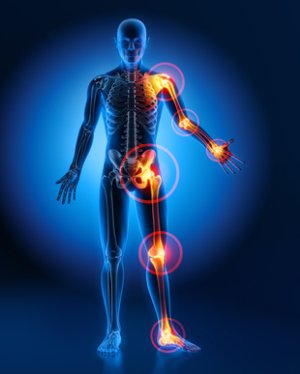 It is hardly a coincidence that many patients with arthritis feel worse during the winter period where the sun sits too low in the sky for us humans to be able to synthesize vitamin D. In patients with rheumatoid arthritis, there is a direct link between vitamin D levels and neuropathic pain caused by irritated nerves. This was shown in a study that is published in International Journal of Rheumatic Diseases.
It is hardly a coincidence that many patients with arthritis feel worse during the winter period where the sun sits too low in the sky for us humans to be able to synthesize vitamin D. In patients with rheumatoid arthritis, there is a direct link between vitamin D levels and neuropathic pain caused by irritated nerves. This was shown in a study that is published in International Journal of Rheumatic Diseases.
 Magnesium is important for an array of biochemical reactions that are involved in energy turnover, the nervous system, and muscle contraction. Lack of magnesium can therefore result in impaired physical performance, sore muscles, and muscle cramps – especially after a training session. Physically active people and athletes should be sure to get enough magnesium and beware that the need for magnesium increases with increasing activity. According to a review article published in Journal of Translational Medicine, it may be wise to take a high-quality magnesium supplement prior to training.
Magnesium is important for an array of biochemical reactions that are involved in energy turnover, the nervous system, and muscle contraction. Lack of magnesium can therefore result in impaired physical performance, sore muscles, and muscle cramps – especially after a training session. Physically active people and athletes should be sure to get enough magnesium and beware that the need for magnesium increases with increasing activity. According to a review article published in Journal of Translational Medicine, it may be wise to take a high-quality magnesium supplement prior to training.
 British scientists have tested whether omega-3 fatty acids from fish oil supplements have a pain-relieving effect on patients with rheumatoid arthritis. As it turns out, consuming fish oils with large quantities of EPA and DHA has the best effect, so make sure to read the label to see how much of the two omega-3 fatty acids your supplement contains. Rheumatoid arthritis and other rheumatic diseases are a result of joint inflammation, so it may also pay off to look into the benefits of an anti-inflammatory diet.
British scientists have tested whether omega-3 fatty acids from fish oil supplements have a pain-relieving effect on patients with rheumatoid arthritis. As it turns out, consuming fish oils with large quantities of EPA and DHA has the best effect, so make sure to read the label to see how much of the two omega-3 fatty acids your supplement contains. Rheumatoid arthritis and other rheumatic diseases are a result of joint inflammation, so it may also pay off to look into the benefits of an anti-inflammatory diet.
Danish researchers have shed some light on the longstanding mystery: Why do we see so many people treated with cholesterol-lowering statins experiencing muscle pain and in some cases, also impaired glucose tolerance. The answer is a lack of Q10!
shed some light on the longstanding mystery: Why do we see so many people treated with cholesterol-lowering statins experiencing muscle pain and in some cases, also impaired glucose tolerance. The answer is a lack of Q10!
- and read more about why too much calcium and overconsumption of dairy products can be harmful
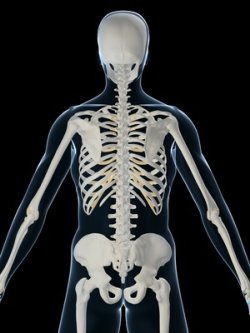 Fragile bones, also known as osteoporosis, is an insidious scourge. Science has its eyes on calcium and vitamin D, but osteoporosis may also be a result of getting too little vitamin K2 and magnesium, both of which are nutrients that must be properly balanced with calcium. If not, calcium may do more harm than good. Carbonated beverages, stimulants, and medicine (including statins) may also interfere with the bone-building processes. Therefore, strong bones require a lot more than calcium, and it is also important to remember daily, bone-challenging exercise.
Fragile bones, also known as osteoporosis, is an insidious scourge. Science has its eyes on calcium and vitamin D, but osteoporosis may also be a result of getting too little vitamin K2 and magnesium, both of which are nutrients that must be properly balanced with calcium. If not, calcium may do more harm than good. Carbonated beverages, stimulants, and medicine (including statins) may also interfere with the bone-building processes. Therefore, strong bones require a lot more than calcium, and it is also important to remember daily, bone-challenging exercise.
 Age-related loss of muscle mass is a natural process and may result in increased feebleness and even disability. Strength training and diet play a major role, and older people need more protein, especially an essential amino acid called leucine. In addition, supplements of vitamin D, omega-3 fatty acids, and probiotics can have a positive impact on muscle mass and muscle strength, according to a review article that is published in Frontiers in Nutrition.
Age-related loss of muscle mass is a natural process and may result in increased feebleness and even disability. Strength training and diet play a major role, and older people need more protein, especially an essential amino acid called leucine. In addition, supplements of vitamin D, omega-3 fatty acids, and probiotics can have a positive impact on muscle mass and muscle strength, according to a review article that is published in Frontiers in Nutrition.
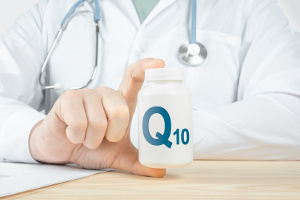 After a COVID-19 infection many people experience chronic symptoms such as fatigue, muscle pain, depression, and sleep disturbances. According to a study that is published in Clinical and Experimental Medicine, supplementing with Q10 and alpha-lipoic acid may help against tiredness and certain other symptoms. The authors describe how Q10 and alpha-lipoic acid support the cellular energy turnover in different ways and serve as antioxidants that protect cells against oxidative stress and cellular damage.
After a COVID-19 infection many people experience chronic symptoms such as fatigue, muscle pain, depression, and sleep disturbances. According to a study that is published in Clinical and Experimental Medicine, supplementing with Q10 and alpha-lipoic acid may help against tiredness and certain other symptoms. The authors describe how Q10 and alpha-lipoic acid support the cellular energy turnover in different ways and serve as antioxidants that protect cells against oxidative stress and cellular damage.
- but ageing processes and cholesterol-lowering drugs inhibit the body’s Q10 synthesis
 No matter how you twist and turn it, cholesterol is an essential substance, and we humans produce most of it ourselves. What is important is to make sure that the cholesterol we have in our blood does not oxidize, and that is something which Q10 and other antioxidants take care of. Stable blood sugar levels also help us maintain a healthy cholesterol balance.
No matter how you twist and turn it, cholesterol is an essential substance, and we humans produce most of it ourselves. What is important is to make sure that the cholesterol we have in our blood does not oxidize, and that is something which Q10 and other antioxidants take care of. Stable blood sugar levels also help us maintain a healthy cholesterol balance.
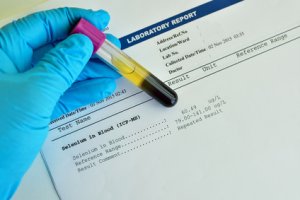 We all get exposed to mercury, a neurotoxin that is found to a great extent in nature and in our environment. According to an EU report, mercury is a large economic burden to society because of the costs related to lowered IQ levels. For that reason alone, we should aim to limit our exposure to mercury and also take a closer look at how selenium protects against the harmful heavy metal – provided our selenium levels are adequately high.
We all get exposed to mercury, a neurotoxin that is found to a great extent in nature and in our environment. According to an EU report, mercury is a large economic burden to society because of the costs related to lowered IQ levels. For that reason alone, we should aim to limit our exposure to mercury and also take a closer look at how selenium protects against the harmful heavy metal – provided our selenium levels are adequately high.
 Undernourishment typically affects the elderly, those with diseases, addicts, and people with eating disorders. The condition increases the risk of serious diseases and repeated hospitalizations and is an enormous economic burden to society. Many undernourished people suffer from loss of appetite, a problem that can often be stimulated with improved diets and supplements of B vitamins.
Undernourishment typically affects the elderly, those with diseases, addicts, and people with eating disorders. The condition increases the risk of serious diseases and repeated hospitalizations and is an enormous economic burden to society. Many undernourished people suffer from loss of appetite, a problem that can often be stimulated with improved diets and supplements of B vitamins.
 Vitamin B3 has a therapeutic effect in the treatment of progressive muscle diseases, including mitochondrial myopathy that is caused by a defective cellular energy metabolism and which has no cure, according to a study from Helsinki University.
Vitamin B3 has a therapeutic effect in the treatment of progressive muscle diseases, including mitochondrial myopathy that is caused by a defective cellular energy metabolism and which has no cure, according to a study from Helsinki University.
 According to a study that was presented to a group of endocrinologists at an Edinburgh conference, supplements of vitamin D may improve sports performance and reduce the risk of cardiovascular disease. One of the things vitamin D does is to block the stress hormone cortisol that makes your blood pressure go up. The problem is that many people lack vitamin D, not only in the winter time but even during the summer period.
According to a study that was presented to a group of endocrinologists at an Edinburgh conference, supplements of vitamin D may improve sports performance and reduce the risk of cardiovascular disease. One of the things vitamin D does is to block the stress hormone cortisol that makes your blood pressure go up. The problem is that many people lack vitamin D, not only in the winter time but even during the summer period.
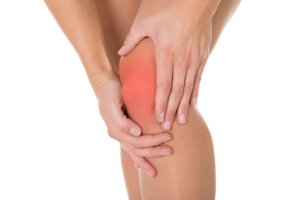 According to researchers, women with weak thighs and hamstrings have an increased risk of developing knee osteoarthritis. Of course, leg muscle exercise is important for preventing this condition, but adequate nutrient intake and maintenance of the right body weight also contribute. For those who are already affected by knee osteoarthritis, glucosamine supplements can be useful. Make sure to choose glucosamine sulfate and to stick with glucosamine supplements that are listed as medical drugs if you want to be sure to obtain the desired effect.
According to researchers, women with weak thighs and hamstrings have an increased risk of developing knee osteoarthritis. Of course, leg muscle exercise is important for preventing this condition, but adequate nutrient intake and maintenance of the right body weight also contribute. For those who are already affected by knee osteoarthritis, glucosamine supplements can be useful. Make sure to choose glucosamine sulfate and to stick with glucosamine supplements that are listed as medical drugs if you want to be sure to obtain the desired effect.
 Undernourishment and lack of protein is common among older people. Evidence even suggests that the recommended daily intake of protein is too low, at least as far as seniors is concerned. The problem is most likely a slowdown of the muscle-building enzyme processes. The quality of protein also has something to say just like the amount of physical activity is a factor.
Undernourishment and lack of protein is common among older people. Evidence even suggests that the recommended daily intake of protein is too low, at least as far as seniors is concerned. The problem is most likely a slowdown of the muscle-building enzyme processes. The quality of protein also has something to say just like the amount of physical activity is a factor.









 Ageing processes are associated with loss of muscle mass and impaired physical performance, both of which tend to lower quality of life. It is commonly known that coenzyme Q10 plays a significant role in cellular energy turnover and protects against oxidative stress. Now, two independent cohort studies even show a relation between the body’s Q10 status and muscle strength. Earlier research even suggests that Q10 supplements may help older people develop more youthful muscle fibers. Individuals who take cholesterol-lowering statins are advised to take Q10 supplements.
Ageing processes are associated with loss of muscle mass and impaired physical performance, both of which tend to lower quality of life. It is commonly known that coenzyme Q10 plays a significant role in cellular energy turnover and protects against oxidative stress. Now, two independent cohort studies even show a relation between the body’s Q10 status and muscle strength. Earlier research even suggests that Q10 supplements may help older people develop more youthful muscle fibers. Individuals who take cholesterol-lowering statins are advised to take Q10 supplements.

 Supplementing with large doses of Q10 may help reduce pain and fatigue in people who suffer from fibromyalgia. An optimal treatment of the disease may even require focusing on underlying causes.
Supplementing with large doses of Q10 may help reduce pain and fatigue in people who suffer from fibromyalgia. An optimal treatment of the disease may even require focusing on underlying causes.
 Osteoarthritis is a widespread disease that eventually affects the majority of us. The symptoms often feel worse during the wintertime. A European group of experts now recommends glucosamine sulfate as first-line treatment, before painkillers, as glucosamine sulfate is the only remedy that can prevent further progression of the disease and therefore effectively reduces the pain.
Osteoarthritis is a widespread disease that eventually affects the majority of us. The symptoms often feel worse during the wintertime. A European group of experts now recommends glucosamine sulfate as first-line treatment, before painkillers, as glucosamine sulfate is the only remedy that can prevent further progression of the disease and therefore effectively reduces the pain. It is hardly a coincidence that many patients with arthritis feel worse during the winter period where the sun sits too low in the sky for us humans to be able to synthesize vitamin D. In patients with rheumatoid arthritis, there is a direct link between vitamin D levels and neuropathic pain caused by irritated nerves. This was shown in a study that is published in International Journal of Rheumatic Diseases.
It is hardly a coincidence that many patients with arthritis feel worse during the winter period where the sun sits too low in the sky for us humans to be able to synthesize vitamin D. In patients with rheumatoid arthritis, there is a direct link between vitamin D levels and neuropathic pain caused by irritated nerves. This was shown in a study that is published in International Journal of Rheumatic Diseases.
 British scientists have tested whether omega-3 fatty acids from fish oil supplements have a pain-relieving effect on patients with rheumatoid arthritis. As it turns out, consuming fish oils with large quantities of EPA and DHA has the best effect, so make sure to read the label to see how much of the two omega-3 fatty acids your supplement contains. Rheumatoid arthritis and other rheumatic diseases are a result of joint inflammation, so it may also pay off to look into the benefits of an anti-inflammatory diet.
British scientists have tested whether omega-3 fatty acids from fish oil supplements have a pain-relieving effect on patients with rheumatoid arthritis. As it turns out, consuming fish oils with large quantities of EPA and DHA has the best effect, so make sure to read the label to see how much of the two omega-3 fatty acids your supplement contains. Rheumatoid arthritis and other rheumatic diseases are a result of joint inflammation, so it may also pay off to look into the benefits of an anti-inflammatory diet. shed some light on the longstanding mystery: Why do we see so many people treated with cholesterol-lowering statins experiencing muscle pain and in some cases, also impaired glucose tolerance. The answer is a lack of Q10!
shed some light on the longstanding mystery: Why do we see so many people treated with cholesterol-lowering statins experiencing muscle pain and in some cases, also impaired glucose tolerance. The answer is a lack of Q10! Fragile bones, also known as osteoporosis, is an insidious scourge. Science has its eyes on calcium and vitamin D, but osteoporosis may also be a result of getting too little vitamin K2 and magnesium, both of which are nutrients that must be properly balanced with calcium. If not, calcium may do more harm than good. Carbonated beverages, stimulants, and medicine (including statins) may also interfere with the bone-building processes. Therefore, strong bones require a lot more than calcium, and it is also important to remember daily, bone-challenging exercise.
Fragile bones, also known as osteoporosis, is an insidious scourge. Science has its eyes on calcium and vitamin D, but osteoporosis may also be a result of getting too little vitamin K2 and magnesium, both of which are nutrients that must be properly balanced with calcium. If not, calcium may do more harm than good. Carbonated beverages, stimulants, and medicine (including statins) may also interfere with the bone-building processes. Therefore, strong bones require a lot more than calcium, and it is also important to remember daily, bone-challenging exercise. Age-related loss of muscle mass is a natural process and may result in increased feebleness and even disability. Strength training and diet play a major role, and older people need more protein, especially an essential amino acid called leucine. In addition, supplements of vitamin D, omega-3 fatty acids, and probiotics can have a positive impact on muscle mass and muscle strength, according to a review article that is published in Frontiers in Nutrition.
Age-related loss of muscle mass is a natural process and may result in increased feebleness and even disability. Strength training and diet play a major role, and older people need more protein, especially an essential amino acid called leucine. In addition, supplements of vitamin D, omega-3 fatty acids, and probiotics can have a positive impact on muscle mass and muscle strength, according to a review article that is published in Frontiers in Nutrition. After a COVID-19 infection many people experience chronic symptoms such as fatigue, muscle pain, depression, and sleep disturbances. According to a study that is published in Clinical and Experimental Medicine, supplementing with Q10 and alpha-lipoic acid may help against tiredness and certain other symptoms. The authors describe how Q10 and alpha-lipoic acid support the cellular energy turnover in different ways and serve as antioxidants that protect cells against oxidative stress and cellular damage.
After a COVID-19 infection many people experience chronic symptoms such as fatigue, muscle pain, depression, and sleep disturbances. According to a study that is published in Clinical and Experimental Medicine, supplementing with Q10 and alpha-lipoic acid may help against tiredness and certain other symptoms. The authors describe how Q10 and alpha-lipoic acid support the cellular energy turnover in different ways and serve as antioxidants that protect cells against oxidative stress and cellular damage. No matter how you twist and turn it, cholesterol is an essential substance, and we humans produce most of it ourselves. What is important is to make sure that the cholesterol we have in our blood does not oxidize, and that is something which Q10 and other antioxidants take care of. Stable blood sugar levels also help us maintain a healthy cholesterol balance.
No matter how you twist and turn it, cholesterol is an essential substance, and we humans produce most of it ourselves. What is important is to make sure that the cholesterol we have in our blood does not oxidize, and that is something which Q10 and other antioxidants take care of. Stable blood sugar levels also help us maintain a healthy cholesterol balance. We all get exposed to mercury, a neurotoxin that is found to a great extent in nature and in our environment. According to an EU report, mercury is a large economic burden to society because of the costs related to lowered IQ levels. For that reason alone, we should aim to limit our exposure to mercury and also take a closer look at how selenium protects against the harmful heavy metal – provided our selenium levels are adequately high.
We all get exposed to mercury, a neurotoxin that is found to a great extent in nature and in our environment. According to an EU report, mercury is a large economic burden to society because of the costs related to lowered IQ levels. For that reason alone, we should aim to limit our exposure to mercury and also take a closer look at how selenium protects against the harmful heavy metal – provided our selenium levels are adequately high. Undernourishment typically affects the elderly, those with diseases, addicts, and people with eating disorders. The condition increases the risk of serious diseases and repeated hospitalizations and is an enormous economic burden to society. Many undernourished people suffer from loss of appetite, a problem that can often be stimulated with improved diets and supplements of B vitamins.
Undernourishment typically affects the elderly, those with diseases, addicts, and people with eating disorders. The condition increases the risk of serious diseases and repeated hospitalizations and is an enormous economic burden to society. Many undernourished people suffer from loss of appetite, a problem that can often be stimulated with improved diets and supplements of B vitamins. Vitamin B3 has a therapeutic effect in the treatment of progressive muscle diseases, including mitochondrial myopathy that is caused by a defective cellular energy metabolism and which has no cure, according to a study from Helsinki University.
Vitamin B3 has a therapeutic effect in the treatment of progressive muscle diseases, including mitochondrial myopathy that is caused by a defective cellular energy metabolism and which has no cure, according to a study from Helsinki University. According to a study that was presented to a group of endocrinologists at an Edinburgh conference, supplements of vitamin D may improve sports performance and reduce the risk of cardiovascular disease. One of the things vitamin D does is to block the stress hormone cortisol that makes your blood pressure go up. The problem is that many people lack vitamin D, not only in the winter time but even during the summer period.
According to a study that was presented to a group of endocrinologists at an Edinburgh conference, supplements of vitamin D may improve sports performance and reduce the risk of cardiovascular disease. One of the things vitamin D does is to block the stress hormone cortisol that makes your blood pressure go up. The problem is that many people lack vitamin D, not only in the winter time but even during the summer period. According to researchers, women with weak thighs and hamstrings have an increased risk of developing knee osteoarthritis. Of course, leg muscle exercise is important for preventing this condition, but adequate nutrient intake and maintenance of the right body weight also contribute. For those who are already affected by knee osteoarthritis, glucosamine supplements can be useful. Make sure to choose glucosamine sulfate and to stick with glucosamine supplements that are listed as medical drugs if you want to be sure to obtain the desired effect.
According to researchers, women with weak thighs and hamstrings have an increased risk of developing knee osteoarthritis. Of course, leg muscle exercise is important for preventing this condition, but adequate nutrient intake and maintenance of the right body weight also contribute. For those who are already affected by knee osteoarthritis, glucosamine supplements can be useful. Make sure to choose glucosamine sulfate and to stick with glucosamine supplements that are listed as medical drugs if you want to be sure to obtain the desired effect. "After about one week of taking the Q10 supplement I could feel a huge difference," says 23-year old Alan Piccini, who has been suffering from extreme fatigue and muscle aches ever since he was a child.
"After about one week of taking the Q10 supplement I could feel a huge difference," says 23-year old Alan Piccini, who has been suffering from extreme fatigue and muscle aches ever since he was a child. “Taking capsules with co-enzyme Q10 has freed me of the severe side effects of my cholesterol lowering medicine,” Mrs Franken explains.
“Taking capsules with co-enzyme Q10 has freed me of the severe side effects of my cholesterol lowering medicine,” Mrs Franken explains.